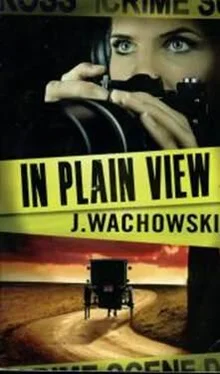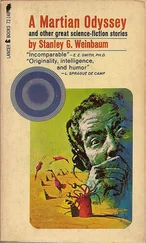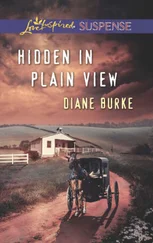Ainsley coughed. “Speaking of times changing, I’ve seen guys drag racing that empty stretch of 39 in the middle of the night. They go out in horse buggies with boom boxes blaring and high-power flashlights.”
That won him a twinkle of a smile. “Sure. Those are courting buggies. Shine a light into a girls’ room at midnight, she might climb out and join you for a ride. In my day, it was pebbles against the glass. There’s another change for you.”
“I don’t get it. No electricity but halogen flashlights are acceptable?”
“Oh, heavens, I can see your hackles rising all the way over here.” Grace waved at me. “People are never as simple as rules, Ms. O’Hara. You’re old enough to know that by now. That’s why everyone has to make their own peace with the contradictions.”
“What about Tom? Did he make his peace?”
The question deflated her. “Tom was the kind of boy who needed the rules. Not because he didn’t want to do good. He needed rules to be at peace. He wasn’t like some of the ones who go away from the community. They stretch and try new things; they experiment. Tom didn’t do that. He held the Ordnung inside as a shield, and kept to much of it. The fire service was the same for him. Rules to a greater purpose. A sense of order, routine. He would have liked the military, I think, except for the fighting. Only man Tom ever hurt was himself.” She took off her glasses and pulled a tissue from up her sleeve.
Ainsley sipped his lemonade. I shook my head at the waste, of both Tom and the image of the moment. I’d never get her to tear up again, even if I could convince her to repeat the interview for the camera.
“Tom liked structure,” I restated to keep her talking. “He played by the rules.”
“Yes. It’s prideful to analyze a person too much. We can never know someone’s heart without walking in their shoes, but maybe…” She sighed in speculation. “Tom’s childhood shook him. He had good reason to wish for security. When he first came to me, I could hardly imagine how he lay down to sleep, he was so stiff.”
“Did he visit you often?”
“More so in the beginning. I gave him a list of chores I needed done and told him what time dinner would be on the table-‘If you’re late,’ I says to him, I said, ‘might be nothing left.’ He was raised on a dairy farm. He wasn’t late.”
Ainsley laughed, but Grace could see I didn’t get the joke.
“All farmers aren’t the same, you know. Dairy farmers have a schedule to keep, every twelve hours. Those cows got to be milked. Now a seed farmer, what with the equipment people have today, they barely have to show up once a week.” She curled her knobby fingers in front of her mouth and pressed, holding a memory back. She nodded until she was calm again. “Thomas would have made a good dairy farmer.”
All together, we preserved the quiet for a moment, imagining a good life un-lived.
Finally I had to ask, “Why do you think he did it?”
We locked eyes. I’ve seen the same look in women’s eyes in every part of the world I’ve stood upon-fire, flood or fighting-the pain of failing the one you’ve tended.
“I keep asking myself, why didn’t he come to me?” Grace leaned back in her chair and rested her hands in her lap. Her cotton print blouse was buttoned all the way to the neck. She was built wiry, and her collar gaped at her throat. The soft loose skin that circled her neck made her look fragile, exhausted by time. “Something happened to Thomas at the fire station, oh some weeks back. I’m sure it was before school started. I was bringing in tomatoes that day. Most of those firemen, Tom revered them. I don’t know exactly what all went on, but somebody on his shift did something that put Thomas in a real twist. Wouldn’t say much to me, but I gathered some fellow broke a rule. Something that put a terrible weight on Tom’s conscience.”
“What rule? Why Tom’s conscience?”
Grace winced as she shrugged, embarrassed or hurt not to know the answer. “He was so upset. It’s hard for Englischers to understand the feeling-”
“What feeling?”
“An Amish community watches over each other. We have the elders, yes, but we also have each other. We are each responsible and we are all responsible.”
I nodded to encourage her. Did she know she used the inclusive “we”?
“After all,” she reached out and patted Ainsley’s knee with a gnarled hand, “what would heaven be without all your loved ones around you? When someone is no longer at peace with himself, he must seek public confession. I think, maybe the fighting, even the things that happened later, maybe it was Thomas’ mixed up way to make the problem public.”
“Uh-oh,” Ainsley summarized.
“Yes. Public confession is not sod, not the worldly way. The last night I saw him, Thomas said he didn’t know if he could belong anymore.”
“At the fire station?”
“I thought he meant there, with the Englischers. I always wondered if perhaps, Thomas might wish to return to Amish ways someday. He’d hinted as much to me. Perhaps he meant something else.”
“Then what happened?”
“He left after dinner as usual.” She pressed her lips together, frustrated. “The world looked different to Thomas than it does to most. It was all a bit darker, more unpredictable. He expected bad things. They never surprised him. Rules helped keep him-” She stopped and searched for the right word.
I thought about saying “sane” but changed it to, “-on track?”
“Yes. That’s just it. When this fellow he trusted broke the rules, poor Thomas was at a loss. He seemed to feel anything could happen and all of it would be bad.”
“Did he tell you about how he was getting along with the men at the firehouse after that? Or about an incident he might have had with the police?”
“Thomas? No. Of course not.” The denial came first because that was fundamentally how Grace thought of Tom, not because she was out to fluff me. I didn’t enjoy watching her perception change. “Did something happen with police?”
“An officer found him with a girl in a parked car,” I said. “They were taken to the station because the girl appeared to be breaking curfew. And she was Amish.”
“Rachel.”
I took a breath. I liked Grace. I didn’t want her to agree to be part of this story without knowing the whole story. Being civilized was a professional liability, but there it is.
“They also found magazines in his trunk.”
“Magazines?”
“Can I have a piece of that fruit bread now?” I asked.
Grace served. It gave me a good excuse to keep my eyes on my plate.
“They were adult magazines,” I told her. “Someone at the police station found out and there was some gossip. It seemed to affect how his colleagues were treating him.”
“Mercy.” She said it softly to herself. Loud and firm, she said, “If you are here to gather information to slander that boy further, I’ll ask you to leave right now.”
“No, Mrs. Ott. I don’t want to slander anyone. I wouldn’t be here if I thought that part of the story was the whole truth.”
I looked over at Ainsley, mostly because I was wishing he wasn’t there. Right at that moment, I didn’t like doing this interview in front of him. It felt uncomfortable. I took a breath and spoke the truth, despite the audience.
“Help me understand what happened. Lots of people know what it feels like to be stuck between old ways and new ways.”
Grace stared at me, eyes large behind glasses. Her face wore a mask of age, but I sensed the empathy of recognition behind it.
“I know what it feels like,” I confessed. “Help me understand why he gave up trying.”
Читать дальше












